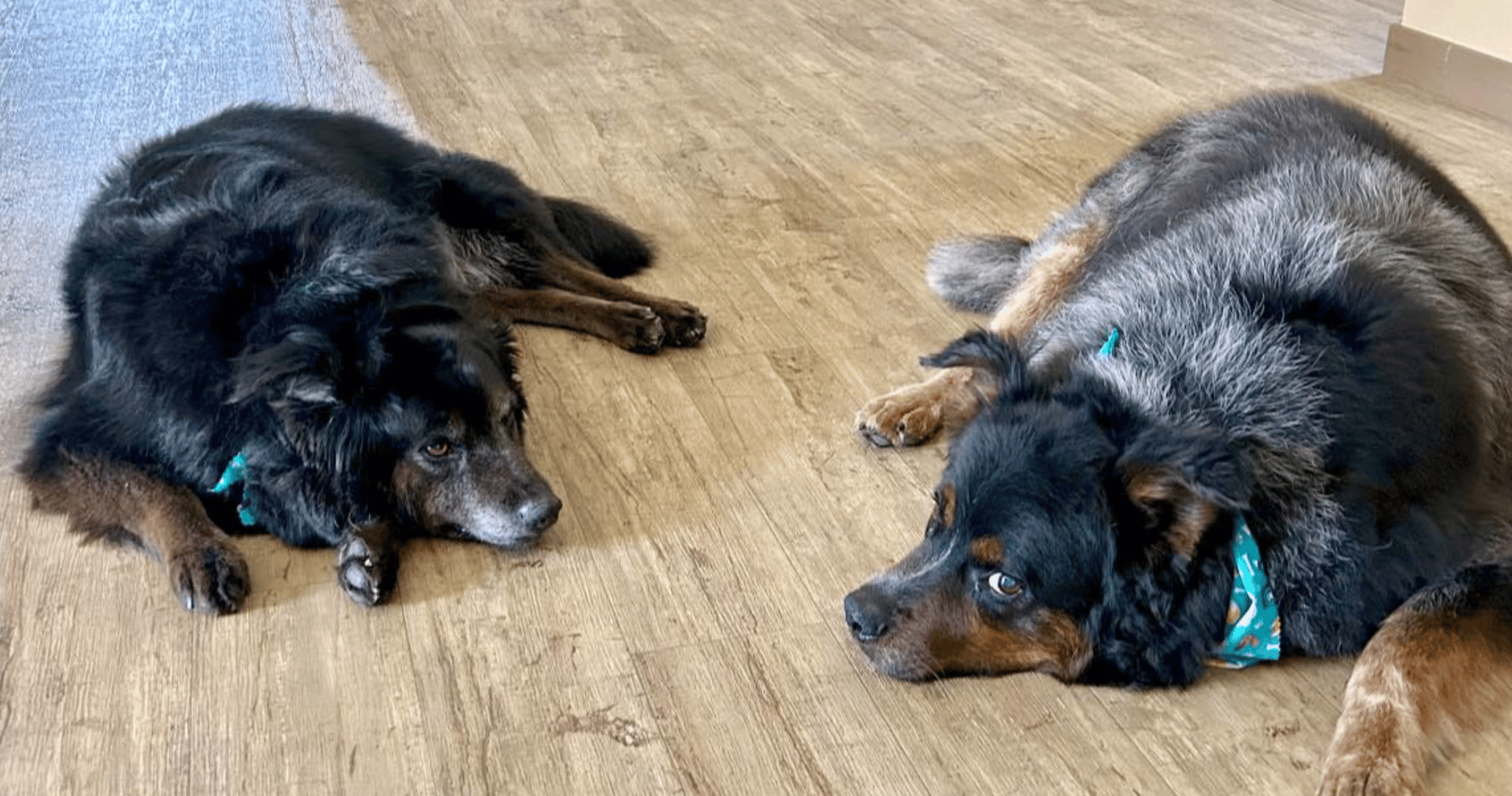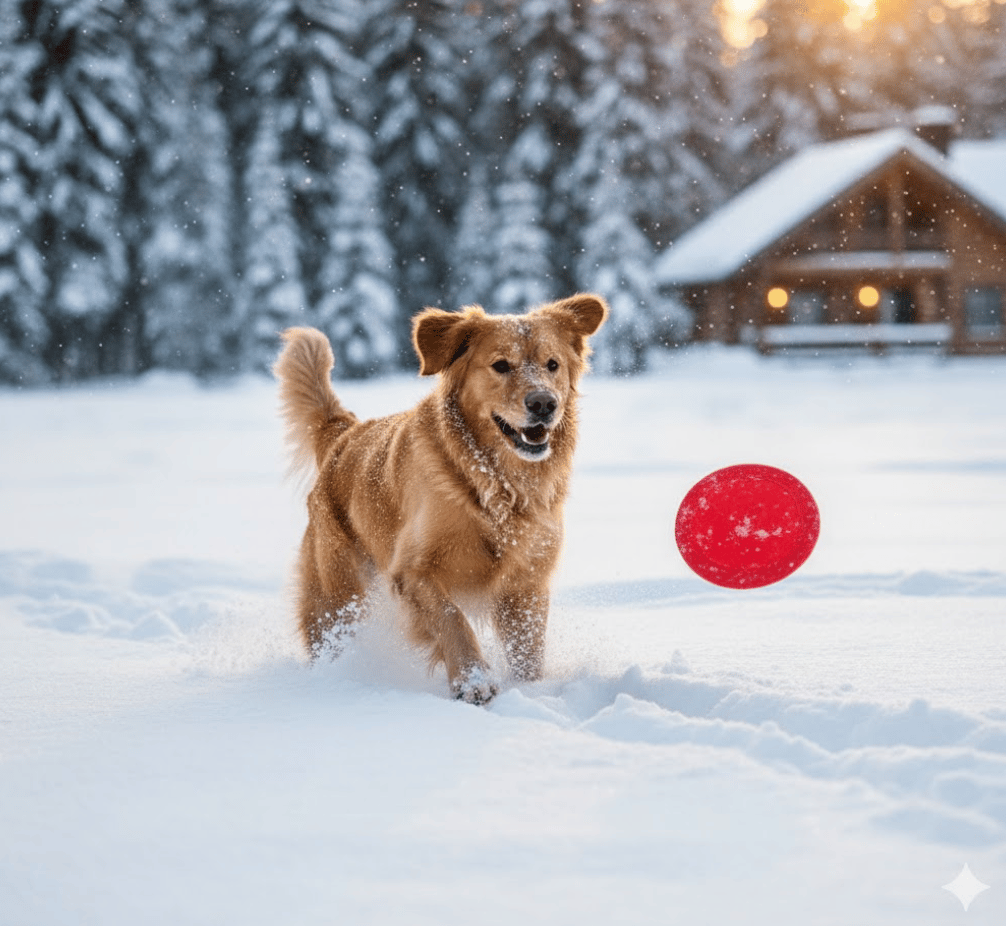Your daily dose of doggy goodness!
Every day, we celebrate our shared love of dogs and hopefully brighten your day. Enjoy!
Dog(s) of the Day:
Scooter and Dukie!

Meme of the day: So excited!

Reddit’s Top Stocks Beat the S&P by 40%
Buffett-era investing was all about company performance. The new era is about investor behavior.
Sure, you can still make good returns investing in solid businesses over 10-20 years.
But in the meantime, you might miss out on 224.29% gainers like Robinhood (the #6 most-mentioned stock on Reddit over the past 6 months).
Reddit's top 15 stocks gained 60% in six months. The S&P 500? 18.7%.
AltIndex's AI processes 100,000s of Reddit comments and factors them into its stock ratings.
We've teamed up with AltIndex to get our readers free access to their app for a limited time.
The market constantly signals which stocks might pop off next. Will you look in the right places this time?
Past performance does not guarantee future results. Investing involves risk including possible loss of principal.
Can Your Canine Companion Catch a Cold? Understanding Dogs and Cold Weather Sickness
As the temperatures drop and winter blankets the world, many of us enjoy cozying up indoors. But what about our beloved dogs? We often wonder if our furry friends are as susceptible to the chill as we are. Can dogs actually get sick from cold weather?
The short answer is yes, they can, but perhaps not in the exact same way a human catches the common cold. It’s important for every dog owner to understand the real risks cold weather poses to their pets and how to keep them safe and warm during the chilly months.

When people talk about catching a "cold" from the weather, they are usually referring to a viral infection. Dogs can certainly suffer from respiratory illnesses like Kennel Cough (Bordetella bronchiseptica) or Canine Influenza, which are contagious viruses.
However, the cold weather itself doesn't cause these viruses. Instead, cold and stress can weaken a dog's immune system, making them more vulnerable to already circulating pathogens. Just like in humans, cold, dry air can also irritate their respiratory tracts, making them more susceptible to infection.
The Real Cold Weather Risks for Dogs
While a direct 'human-style' cold is less common, there are far more serious health issues linked directly to exposure to low temperatures:
Hypothermia
This is arguably the most dangerous threat. Hypothermia occurs when a dog's body temperature drops to a critically low level, usually after prolonged exposure to cold or wet conditions.
Signs of Hypothermia:
Shivering (often one of the first signs)
Lethargy or weakness
Whining or anxious behavior
Shallow breathing
Stiff limbs or difficulty moving
This is a veterinary emergency! If you suspect hypothermia, immediately wrap your dog in warm blankets and contact your vet.
Frostbite
The ears, paws, and tail are most vulnerable to frostbite—tissue damage caused by freezing. This often happens when a dog is left outdoors for too long, even if they have a thick coat.
Signs of Frostbite:
Skin that looks pale, blue, or grey
Cold to the touch
Swelling
Pain when the area is touched (or sometimes numbness)
Worsening of Existing Conditions
Cold weather can exacerbate chronic health issues, especially arthritis. Low temperatures can increase joint stiffness and pain, making it harder for older or mobility-challenged dogs to get around.
How to Keep Your Dog Cozy and Healthy
Keeping your dog happy and healthy in the winter is simple with a few easy adjustments to your routine:
Limit Outdoor Time: On extremely cold days, especially if temperatures dip below freezing, keep walks short. A dog with a thin coat should wear a dog coat or sweater for extra insulation.
Provide Warm Shelter: If your dog spends time outdoors, ensure their shelter is insulated, dry, and elevated off the cold ground. Better yet, let them spend their time indoors with the family!
Protect Their Paws: Paws are extremely susceptible to cold and chemical burns from road salt and de-icers. Consider dog booties or use a protective balm like petroleum jelly before walks, and always wipe their paws after coming inside.
Ensure Fresh Water: If your dog is outside, check their water bowl frequently to make sure it hasn't frozen over. Dogs need just as much hydration in the winter!
Mind the Heating: While cozying up near the fireplace is lovely, be mindful of where your dog sleeps. Direct exposure to heaters or vents can cause dry skin.
The Takeaway: Be Proactive!
While the image of a dog sneezing with a box of tissues is a bit cartoonish, the risk of cold-related illness and injury is very real. Your dog's natural fur coat offers protection, but it is no match for extreme cold.
Your best defense is to be proactive: know your dog's tolerance for cold, watch for signs of distress, and provide plenty of warmth and care. After all, a cozy dog is a happy dog, and that means a happy owner, too!
Dog Food and Supplement Recalls
Here are the recent recalls and advisories:
Foodynamics - Freeze Dried Pet Treats for potential Salmonella contamination.
Nature’s Own - Pet Chews Bully Bites Treats for potential Salmonella contamination.
Viva - Ground Beef for Dogs and Ground Chicken for Dogs and Cats for potential Salmonella and Listeria contamination.
Savage Pet - Cat Food Chicken for potential bird flu exposure.
Family Photo of the Day:
Luna!

We want to feature your pup!
We want to share your pup with our pack. Email us your favorite doggy pic or video with your pup’s name, and we'll try to feature it as a family photo in one of our upcoming newsletters or on our Facebook page.
Share our newsletter with your friends!
Meme of the day: @biggiepawws


